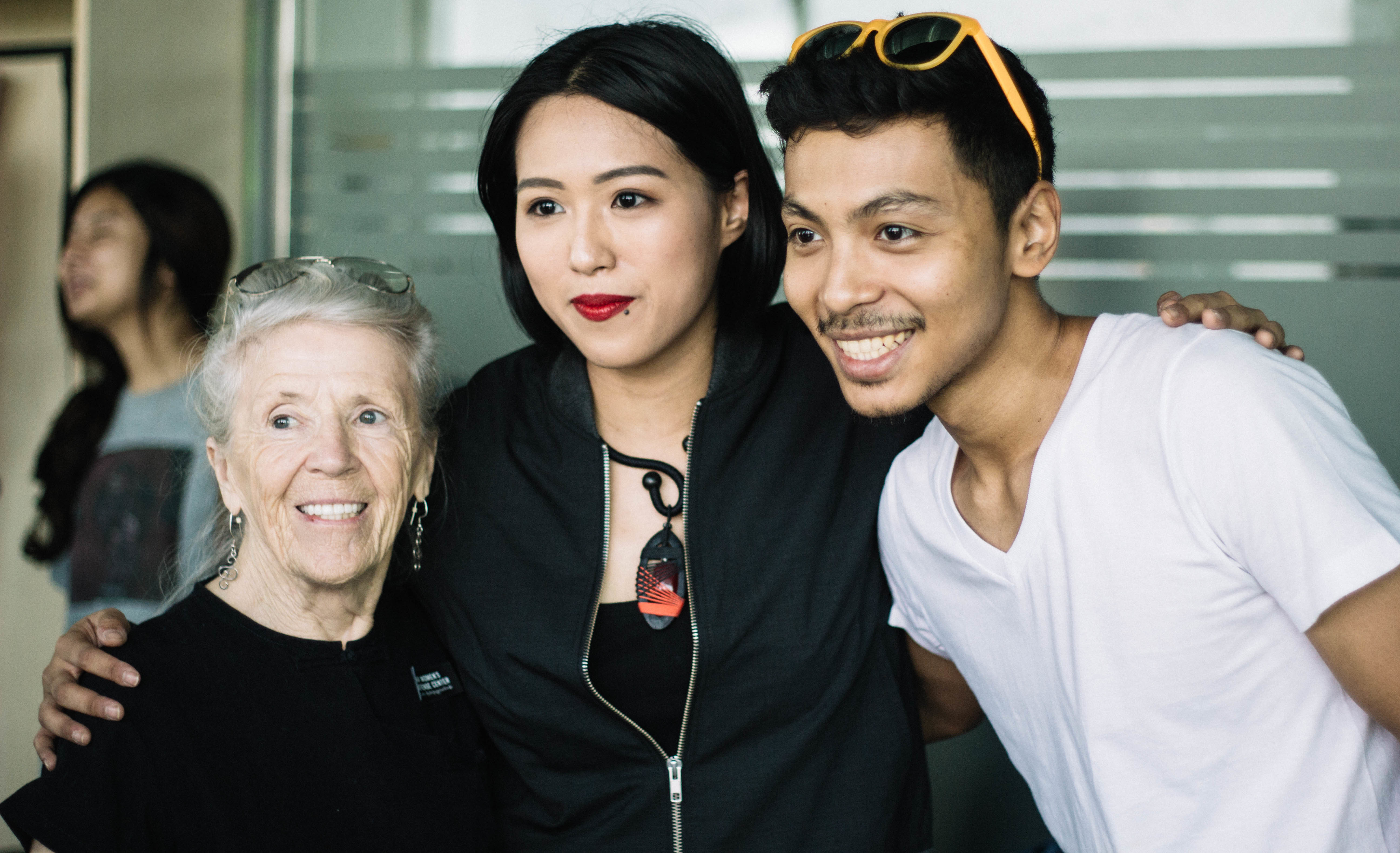Over the last two years, the Myanmar Women’s Self-Defense Center has grown from a business idea with no budget to an institution that has imparted basic self-defense skills to more than 440 women. On the occasion of the company’s second anniversary last month, we asked co-founder Evelyn Yu Yu Swe to tell us about her quest to make Myanmar women safe, strong, and self-confident.
How do you explain MWSDC’s growing success? Do you think it’s linked to other trends in Myanmar or around the world?
I think our journey hasn’t been as linear as some might think. A lot of the growing success has been because of the commitment and perseverance of our team members during difficult times or when there didn’t really seem to be much interest.
I do not think the interest in women’s rights and safety should be characterized as a “trend” per se, as that implies an interest that will fade once it’s no longer in vogue. I would characterize the mounting interest around the world as a result of the hard work and organizing of women, allies, and activists who have really worked to bring this issue to the fore.
(Editor’s note: We agree with Evelyn.)
Have the skills you teach ever been applied in real life?
The skills taught through the course are not limited to physical self-defense. The course starts with teaching women how to speak up when they are made uncomfortable – something a lot of women have trouble with, as evidenced by all the anecdotal evidence circulating through the #metoo, #timesup, and #itsnotok campaigns. I truly believe the skills of voicing our discomfort and concern with confidence does come in handy for any woman that takes our course.
The classes on legal procedure and sexuality also benefit our students’ lives outside of incidents of immediate danger.
Now, we do have some students who have recounted being physically accosted, and in those instances, they have claimed that the training through self-defense has kicked in during these emergencies. However, the goal of the course is for no woman to ever need to use the physical aspects of our training.
What’s the main thing men need to learn in order to help rid society of sexual violence?
Our center is now pioneering a course for men, where we discuss issues of masculinity and manhood in relation to how it affects women.
The main thing men need to learn is to respect women’s rights and agency as equal to men’s. There are too many culturally and socially ingrained double standards that men do not see as unequal simply because they have never viewed the world from a woman’s perspective. It is important not to treat women’s issues and concerns as secondary or unimportant, which is what happens all too often.
What are your thoughts on the “death penalty for rapists” campaign?
I can’t speak for the whole group or my organization as we don’t have a formal “position” on this campaign, but I think it’s misguided. Not only is the death penalty itself inhumane, but it does nothing for the victims of rape.
We need to shift away from thinking only of the punitive outcomes of rape and concern ourselves instead with victim-focused and victim-centered solutions.
Some might think the death penalty acts as a good deterrent, but a law is only as good as its enforcement. In Myanmar, the criteria for what even constitutes rape is so narrowly defined that 90 percent of sexual violence that victims experience, which isn’t penis-in-vagina penetrative sex, is not even considered rape. That seems silly to me.
How has your curriculum has changed recently?
The physical training has been updated to better reflect the abilities and needs of the everyday woman, where you don’t need to be a super-strong superwoman to learn the basics for defense. Of course, we still do physical conditioning and training our students to be strong, but the defense training no longer relies on it entirely.
The old curriculum included 12 hours total, 1.5 hours of law, and 1.5 hours of sexuality training, 9 hours of physical training based in lethwei (Myanmar boxing). The new curriculum has 15 hours total, with 1.5 hours each of law and sexuality, 1.5 hours for a guest lecture, where women leaders and allies can come to give a workshop or training to expose our students to the larger women’s movement, and the rest is physical training.
What are some challenges MWSDC has overcome over these two years? How did you overcome them?
All our team members, except [co-founder Michelle] and myself, are former students of MWSDC; all are professional career women who work here on a voluntary basis. Having everyone make the time commitment to participate in our programs and activities has been quite challenging.
However, we have been lucky in that everyone enthusiastically devotes as much time as they can afford to our group, even though we all lead busy lives. We make sure that supporting each other through the team is as important as supporting other women in Myanmar.
What’s in store for the next two years?
We are expanding our team, training a third and fourth generation of self-defense trainers. Hopefully more trainers, more courses, more bespoke classes for business and organization, and MORE RIGHTS FOR WOMEN!!!



Reader Interactions